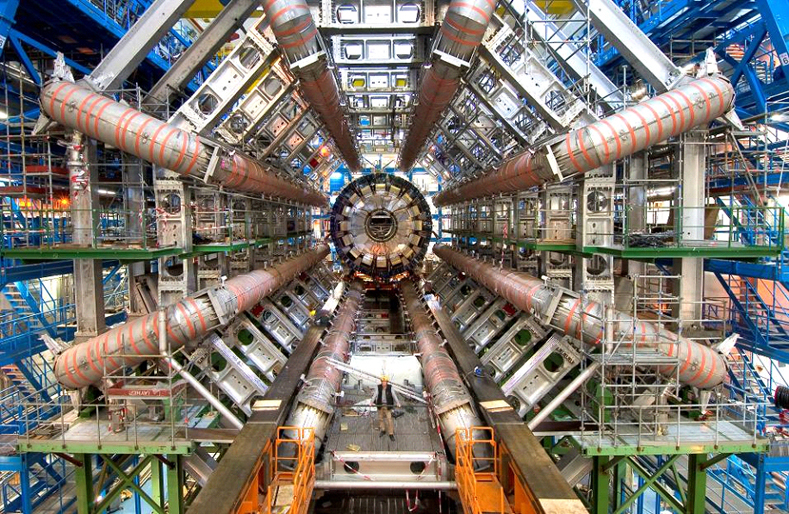Physicist: Unfortunately, ultra small black holes straddle the line between quantum mechanics and general relativity, which makes it difficult to make useful predictions. The answer is: a solid maybe. If your conCERN is that the black hole thus created will destroy the world, you can relax.
First, the hole will be so small that you couldn’t force-feed it an electron.
Second, the TeV (the energy an electron has after being pushed through 1,000,000,000,000 volts) collisions that CERN is aiming for happen in nature. Statistically, they should happen in the upper atmosphere somewhere in the world a couple times a day. The record is held by the OhMyGod particle detected in 1991, which had an energy of around 300 million TeV. So if we can form tiny black holes, then nature’s already beaten us to the punch. The evidence of these ridiculously high energy collisions come in the form of a “shotgun” wave of intense radiation, that only affect small areas on the ground a couple hundred yards across. You’ve been hit by several of these events in your lifetime, and been none the wiser.
Do to the effects of Hawking radiation (which makes small black holes fizzle out and disappear), the scientists at CERN are working on methods to detect the secondary effects of a fresh black hole evaporating, instead of detecting the hole itself. They don’t expect it to last long enough to get from the collision point all the way to the detectors, which are only inches away.

CERN: The last thing James Bond will ever see.







Pingback: physicist and mathematician
Pingback: Q: Will black holes ever release their energy and will we be able to tell what had gone into them? « Ask a Mathematician / Ask a Physicist
Pingback: Q: Would it be possible in the distant future to directly convert matter into energy? | Ask a Mathematician / Ask a Physicist
Pingback: Algum dia o acelerador de partícula da CERN poderá criar um buraco negro? | Recanto do Dragão
Pingback: Komputery nie będą szybsze. Czy mamy czym zastąpić krzem?